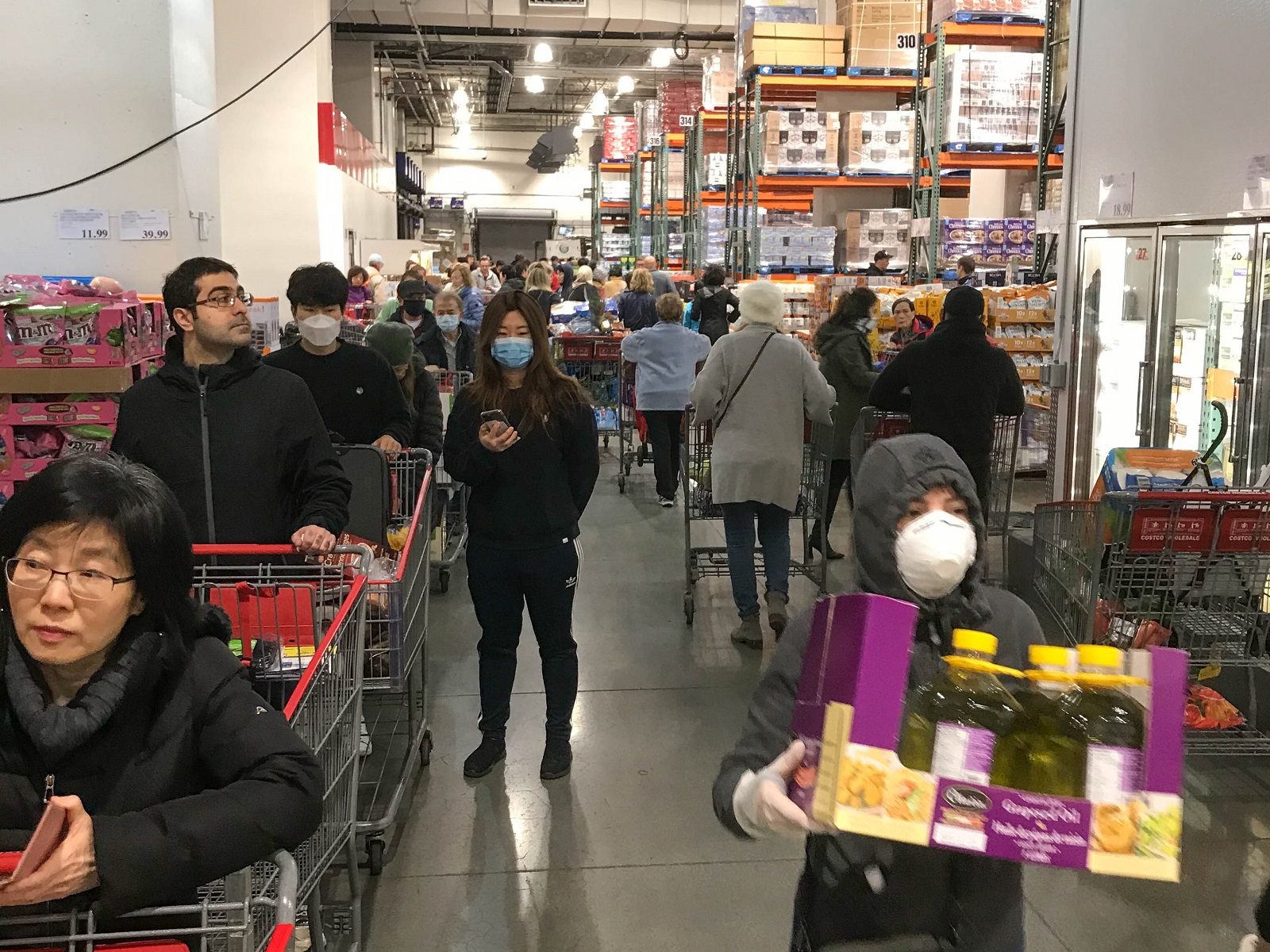Pay no heed to Vancouver’s empty shelves or the people hauling carts of goods home — there is no supply shortage, say experts and the grocery industry.
“We make the pigs, we make the chickens, we make the cows and the milk, we grow all the grains — the supply chain is in our backyard and it is functional,” said Lindsay Meredith, professor emeritus of marketing at Simon Fraser University’s business school.
About 70 per cent of common groceries in Canada are produced domestically, estimates the Retail Council of Canada. Even imports from the U.S. won’t be affected by the border closure announced this morning, as the movement of goods will continue.
“I understand the value of hoarding and stockpiling if you had a massive earthquake for example, when there is a limited supply of food and no way for the supply chain to re-establish itself,” said Meredith.
But that’s not what’s happening here.
Then why the frenzy and empty shelves?
Restocking shelves when people grab a lot of items takes time, Meredith notes. And a temporary lack of goods in some stores is being blown out of proportion.
“There’s a psychology problem here, not a production problem,” said Meredith.
Glimpses of empty shelves in person and on social media are making people fear there is a shortage of goods and rush to stockpile.
But don’t be worried by this race to shop, says Werner Antweiler at the University of British Columbia’s business school, an expert on trade.
“The grocery stores are caught off guard,” he said. “The stores are simply not prepared to deal with massive changes in consumer behaviour over a short time period.
“But they’re all restocking. Trucks are on the go. There’s really no problem,” Antweiler said.
“Fear is making people behave in very unusual ways, such as people buying massive amounts of toilet paper, hoarding things. But there’s really no reason to think we’re going to be running out.”
Typically, grocery stores restock fresh goods several times a week and non-perishables between once a week and once a month, he said.
But in these times they’re accelerating deliveries and replenishing shelves as needed.
On Monday, the chief executive of Loblaw, Canada’s largest grocer, issued a public letter to customers telling them not to worry.
“We are not running out of food or essential supplies,” Galen Weston wrote, stressing that this will not change even as borders are tightened.
Weston also promised “not raise a single price on any item to take advantage of COVID-19.”
As for toilet paper, the subject of much panic-buying, the supply is also doing just fine.
Kruger, which produces about a third of all of Canada’s toilet paper, has its seven facilities running round-the-clock. Raw materials for their toilet paper come from Canada, so border closures aren’t an issue.
Antweiler said it’s reasonable for people to buy more supplies than normal, since they’ll be at home more and eating out less. But a weekly run should suffice, he said. During shopping trips, just make sure to keep distance from others and wash hands before and after.
He says to expect a continued rise in delivery services and online shopping. Health experts have said they’re safe to use, recommending that people opt to have the products dropped off at their door rather than having a face-to-face meeting with the delivery person.
In the U.S., the culture of fear has resulted in the stockpiling of products less common in Canada: guns and ammunition. “Clearly, the first issue is to fight off people who want your goods,” said SFU’s Meredith.
Antweiler does have one thing he suggest people stockpile in this crisis.
“Patience, with a good dose of consideration for their neighbours and their community.” ![]()
Read more: Coronavirus
















Tyee Commenting Guidelines
Comments that violate guidelines risk being deleted, and violations may result in a temporary or permanent user ban. Maintain the spirit of good conversation to stay in the discussion.
*Please note The Tyee is not a forum for spreading misinformation about COVID-19, denying its existence or minimizing its risk to public health.
Do:
Do not: